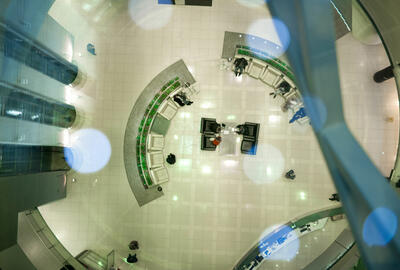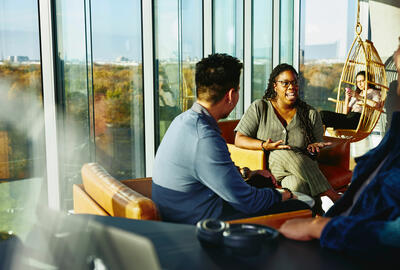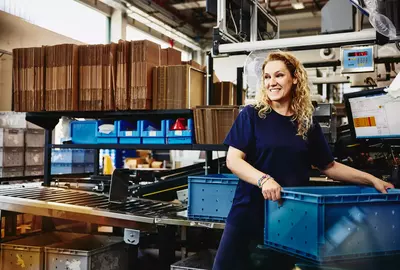Millennials often endure a tough time in the media being labelled tech-obsessed, entitled and disloyal to their employers.
Behind the negative headlines, these young people will become the future shareholders, board members and managers of the future and with fresh blood comes a fresh mentality that differs greatly from both generation X and the baby boomers that precede them.
As these millennials gradually replace them, we will begin to see a shift in the workplace values that currently preside. But what can we expect?
Office of the future.
Obviously plants are on the list, they’re up there with ‘avocado toast’ on the long list of things millennials have taken a shine to. Whether they’re using them to plug the void of not having pets, not having a garden, or whether they are reflective of a yearning for the environment that those raised in an increasingly urban world long to experience, there is actually some method to the madness.
Research suggests that incorporating foliage into the design of an office space has a positive effect on wellbeing, reducing levels of stress and anxiety. Some research also found plants to improve attentiveness, reaction times and increase productivity.
Variety in setting.
The days of eight hours glued to one spot are potentially coming to an end. Open-plan workspaces that value variety and collaboration have already started to crop up around the world. An example of this is CBRE360, a global initiative that seeks to transform the way we work.
The offices they create feature pods, open plan tables for group work, lounges and private ‘phone booths’, with the idea of creating an ‘agile’ working environment that increases the ability to not only collaborate, but to concentrate too. In a survey of those currently using the CBRE360 spaces, 98% of staff said they will never return to the old way of working with assigned desks, 58% said they felt more productive, 63% felt more satisfied and 68% felt more in control.
People analytics.
There will be a rise in people analytics, which is essentially a HR tool that gathers information on staff. This can help fight against subjective boardroom decisions on the working environment, and can even be a useful tool against workplace discrimination. Information gathered includes personal development, personality traits and even levels of happiness as well as company culture. Through use of technology, companies will have objective data at their fingertips that can help identify where wellbeing can be improved, as well as what helps productivity and what hinders it.
Work/life balance.
Remote working and flexi hours are an increasingly popular option for employers looking to give their staff a better work/life balance. We’ll see its popularity continue to rise as more millennials enter the workforce, as many have a less money-centric attitude towards working and value flexibility and wellbeing in their jobs. Whilst this is something that might be of concern to facilities management teams, developments in technology such as docks and workstations, programmes like Citrix where you can access your desktop anywhere, call diversion and the affordability of providing work phones is enough to make remote working easy, as well as to keep facilities busy.
Furthermore, due to the inexpensiveness of ergonomic home office furniture and equipment, there is the likelihood that contractors will start funding home office environments, as well as office spaces.
The workplace of the future will be built for collaboration, cohesion, flexibility and wellbeing in an effort to accommodate for a generation who often refuse to be defined by the job they do. This way of working will be a key tool in trying to combat the mental health crisis that affects one in four people in the UK each year. The days of the nine to five might be ending but a revolution of workplace happiness and job satisfaction is on the horizon.





